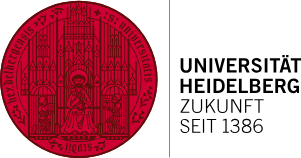Study Nursing in Germany

Contents
🩺 Quick Summary: Study Nursing in Germany (2025/2026 Guide)
Germany is one of the best places to study Nursing, offering hands-on education, modern medical facilities, and low or no tuition fees — especially at public universities. Whether you’re a beginner or an experienced professional, Nursing programs in Germany combine practical experience with academic excellence.
Top universities offering Nursing degrees:
-
Hof University – M.Sc. Cross Cultural Nursing Practice (English-taught, no tuition fee)
-
Heidelberg University – B.Sc. Interprofessional Healthcare (English & German)
-
Witten/Herdecke University – M.Sc. Nursing Science (English & German, private)
💡 Why choose Germany for Nursing?
-
Affordable or tuition-free programs
-
Training in world-class hospitals and healthcare systems
-
English-taught courses available
-
High employability and career growth after graduation
🎯 Find your ideal Nursing degree in Germany
Use the Expatrio StudyBuddy All-in-One Quiz to discover personalized Nursing programs based on your skills, city preferences, and budget. You’ll get smart recommendations that match your background and career goals all in minutes.
Are you thinking about a career in nursing? Germany can be a great place to start. With a stable education system, a well-organized healthcare sector, and top-tier medical technology, Germany has much to offer aspiring nurses. Whether you're just starting or looking to advance your education, studying Nursing in Germany could be a smart move.
Int. Study Programs
Universities
Cities
Why Study Nursing in Germany as an International Student?
Germany's reputation for quality education and healthcare makes it a great place to study Nursing. Here are a few reasons why:
- Experiential Study: German Nursing programs teach students with practical examples, providing a hands-on experience from day one.
- Affordable costs: Many public universities in Germany charge low or no tuition fees for international students, making education more accessible.
- Strong healthcare system: As a Nursing student, you'll train in one of the world's best healthcare systems, using cutting-edge technology and methods.
- International environment: With students from around the globe, German universities provide an international setting that allows you to gain perspectives about different healthcare systems and cultures.
- Career opportunities: After graduation, you’ll find numerous opportunities within the country, especially since there’s a high demand for Nursing graduates in both public and private healthcare facilities.
Nursing Studies in Germany in English
German universities are actively working on accommodating international students by offering English nursing programs. While many Nursing courses are available in German, there has been an upward trend in English language programs. This makes it possible for non-German speakers to get a Nursing education in Germany without a language barrier.
English-taught programs
Some universities offer these programs entirely in English, making them a great option for international students.
International collaboration
Many English-taught programs partner with hospitals and healthcare institutions around the world, giving you the chance to gain international experience and insights.
Language preparation
If you find a program you like but it’s primarily in German, many universities also offer preparatory language courses to help you reach the required proficiency.
Accessibility
Nursing studies in English can make the transition to living and studying in Germany easier, as many universities also offer German Language courses as part of their degrees.
Best Universities and Nursing Schools in Germany
Study in Germany: Nursing Course and Degrees
Unlike many other fields where theoretical knowledge is often taught separately from its practical application, Nursing students in Germany gain both theoretical and practical experience. This prepares them well for the demands of the healthcare profession from the moment they graduate.
Dual Vocational Training (Ausbildung) in Nursing
Dual Vocational Training combines classroom education with practical experience in healthcare settings. This is a popular option for students who want to enter a nursing profession with a strong practical foundation.
- Duration: 3 years
- Focus: Practical nursing skills, patient care, healthcare procedures
- Career: Registered nurse, positions in hospitals, clinics, and other healthcare facilities
Bachelor's in Nursing
Another great option is getting a bachelor's degree in Nursing (often referred to as "Pflegewissenschaft" or "Pflege"). It is suitable for those who want to gain a more academic and theoretical understanding of nursing.
- Duration: 3 to 4 years
- Focus: Nursing science, advanced patient care, healthcare management, research methods
- Career: Advanced nursing roles, healthcare administration
Master's in Nursing
For those who already have a bachelor's degree in Nursing or a related field, pursuing a master's degree in Nursing in Germany offers opportunities for advanced education and specialization.
- Duration: 2 years
- Focus: Advanced clinical practice, nursing management, nursing education, research
- Career: Specialized clinical roles, leadership, nurse educator or trainer, healthcare research
💡 Curious about other subjects you can study in Germany?
Browse the full list of study programs available in Germany by subject and degree. For more tips on applying, financing your studies, and settling in, check out our Study in Germany hub.
Nursing-Related Studies in Germany
Public Health
Germany has great public health programs that provide comprehensive training in health promotion, disease prevention, and health policy development. Public health degrees often include coursework and practical experiences that prepare students to address health issues on a population level. This involves developing policies and programs that promote public health and prevent disease.
- Focus: Epidemiology, health promotion, public health policy, global health
- Career: Public health nurse, health educator, epidemiologist, public health consultant
Healthcare Management
Healthcare management programs give students the skills they need to manage teams, resources, and processes to improve healthcare services. Nurses can move into leadership and administrative roles with this qualification.
- Focus: Healthcare administration, management strategies, health economics, quality improvement
- Career: Healthcare manager, hospital administrator, healthcare consultant, clinical director
Medical Informatics
Programs in medical informatics combine healthcare knowledge with IT skills, preparing graduates to implement and manage healthcare technologies that enhance patient care and data management.
- Focus: Health information systems, data management, telemedicine, health IT solutions
- Career: Health informatics specialist, clinical informaticist, IT manager in healthcare, telehealth coordinator
FAQs
What are the language requirements to study Nursing in Germany for international students?
Most nursing programs in Germany are taught in German, requiring international students to demonstrate proficiency in the language. This is typically achieved through standardized language tests such as TestDaF (Test of German as a Foreign Language) or DSH (German Language University Entrance Examination for Foreign Applicants) with a minimum proficiency level of B2.
What are the visa requirements for students?
International students from non-EU countries need a student visa to study in Germany. The application process involves submitting proof of university admission, evidence of sufficient financial resources, health insurance, and accommodation details to the German embassy or consulate in your home country. It's important to apply in advance as visa processing can take several weeks. Once you arrive in Germany, you'll also need to register with the local registration office and apply for a residence permit.
Can international students work in Germany post-graduation?
Yes, international students can work in Germany after graduation. You can apply for an 18-month post-study work permit to find employment related to your field of study. Once you've got a job, you can apply for a permanent residency permit which you may be eligible for after two years of employment. This pathway is a great way for international graduates to get their careers off the ground in Germany.
This might also be of interest to you

Summer Semester in Germany: Your Complete Guide for April 2026 Intake
Thinking about studying in Germany but missed the October deadline? The summer semester might be your perfect opportunity. While most international...

Why More Indian Students Are Choosing Germany Over the USA
In the last decade, Germany has become one of the fastest-growing study destinations for Indian students. While the USA once dominated the dreams of...

Top Courses for Indian Students in Germany vs USA (2025 Guide)
Studying abroad is a dream for many Indian students, but choosing the right country and course can be confusing. The United States and Germany are...

Germany vs USA: Work After Study Options for Indian Students (2025 Guide)
When you're choosing where to study abroad, it's not just about the university name or the country hype. For many Indian students, the big question...

5 Cheapest Countries to Study Abroad for Indian Students (2026 Guide)
Studying abroad doesn't have to drain ₹40-60 lakhs from your family's savings. Five countries offer world-class education for under ₹10 lakhs per...

Germany vs USA: Which Is Better for Indian Students in 2025?
Choosing where to study abroad is a big deal, especially for Indian students. You're not just picking a country; you're deciding to move far from...

Germany Welcomes Displaced Harvard Students: A New Academic Home
In a move that’s left thousands of students in shock, the U.S. government has revoked Harvard University’s certification to enroll international...








